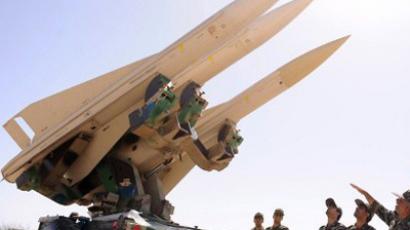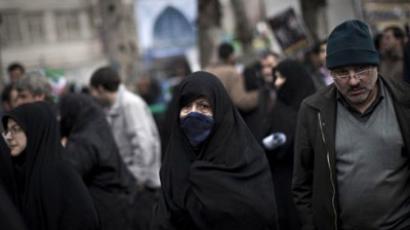War drums beat, but Israel ‘ill equipped’ for threats
The temperature’s rising in Israel – not just over a possible clash with Iran, but also over a threat of chemical weapons from Syria. Israelis are worried their country is unprepared for war, and doesn’t even have enough gas masks and shelters.
There is certainly plenty of saber-rattling going on. Israel recently reiterated it is ready to attack Iran and other enemies in the region, and is already carrying out special operations outside its borders. Analysts say an Israeli strike could set in motion a military backlash, prompting a massive missile barrage from Iran, Lebanon and Gaza. Israel claims it has been beefing up the home front to deal with the threat. In large cities, many parking lots can be quickly turned into bomb shelters, and there have been frequent civil defense drills. Most homes, sports fields and children’s playgrounds also have bomb shelters.But that doesn't reassure the community. Zeev Bielski, who heads the parliamentary committee for home front preparedness, accused the Israeli government of disregarding grave threats.“We have 1.7 million people that haven’t got any shelter. We have 3.5 million people who don’t have gas masks. So we cannot call it [Israel] prepared,” he told RT. Zeev Bielski warns it would take Israel at least two years to make up the current shortage in gas masks, even assuming factories receive the necessary funds.Many other experts are also concerned Israel has not distributed gas masks to the public as it did ahead of the First Gulf War in 1991 and the US invasion of Iraq in 2003. “The government obviously doesn’t want to put the public into panic. But I think the public itself probably does not believe in a strike, that a strike or a counter-attack is imminent. Otherwise people would’ve gone crazy,” Yiftah Shapir, head of the Middle East Military Balance Project, explained to RT.Dr. Uri Avnery, Israeli writer and founder of the Gush Shalom Peace Movement also confirmed that “if a government really intends to start a war, they would do things differently.”But it’s not just a possible conflict with Iran on the horizon.The Israeli government came under pressure last year to cut its defense budget to fund social spending. But in January, Prime Minister Benjamin Netanyahu announced an increase in military spending, citing regional developments, especially in neighboring Syria. Israel’s air force chief warned that Damascus possesses stockpiles of chemical and biological weapons. In this light, Bielski’s assessment of Israel’s preparedness for war comes as particularly poignant.














